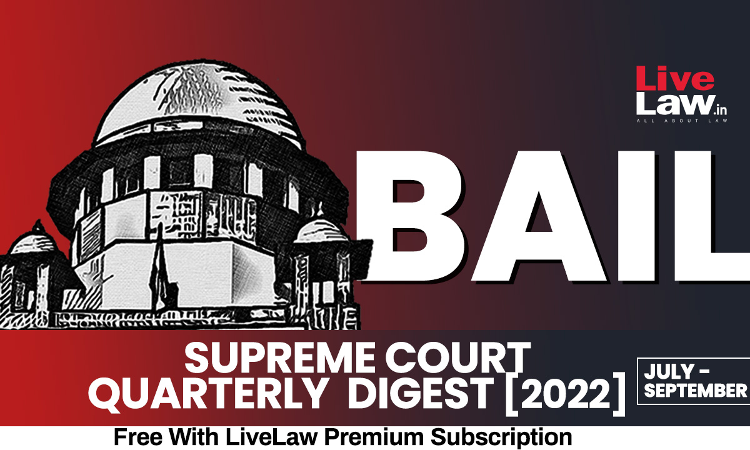Supreme Court Quarterly Digest on Bail July- September, 2022
LIVELAW NEWS NETWORK
20 Oct 2022 8:42 AM IST

Next Story
20 Oct 2022 8:42 AM IST
Bail - Economic Offences - The gravity of the offence, the object of the Special Act, and the attending circumstances are a few of the factors to be taken note of, along with the period of sentence. After all, an economic offence cannot be classified as such, as it may involve various activities and may differ from one case to another - It is not advisable on the part of the court...
